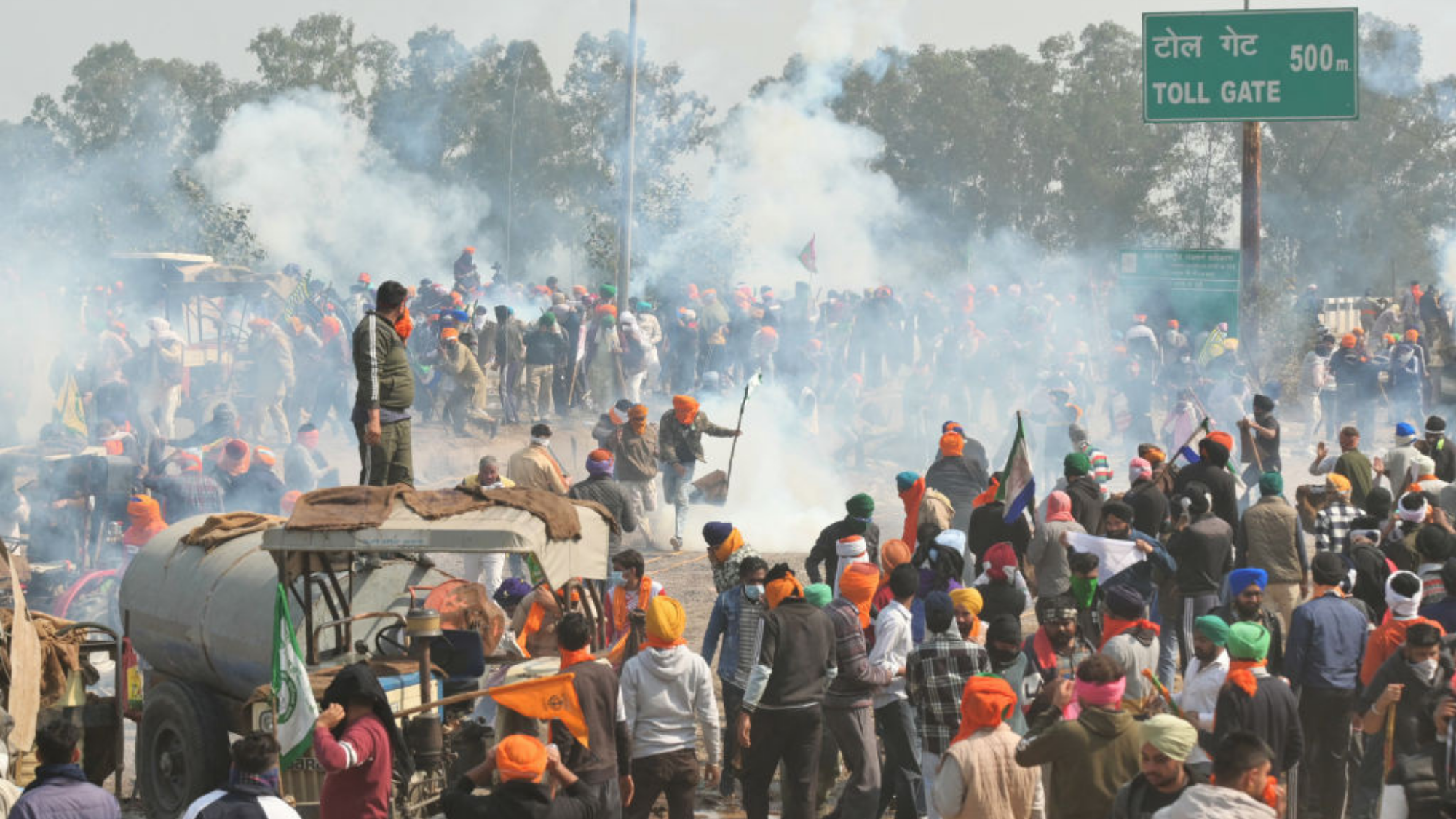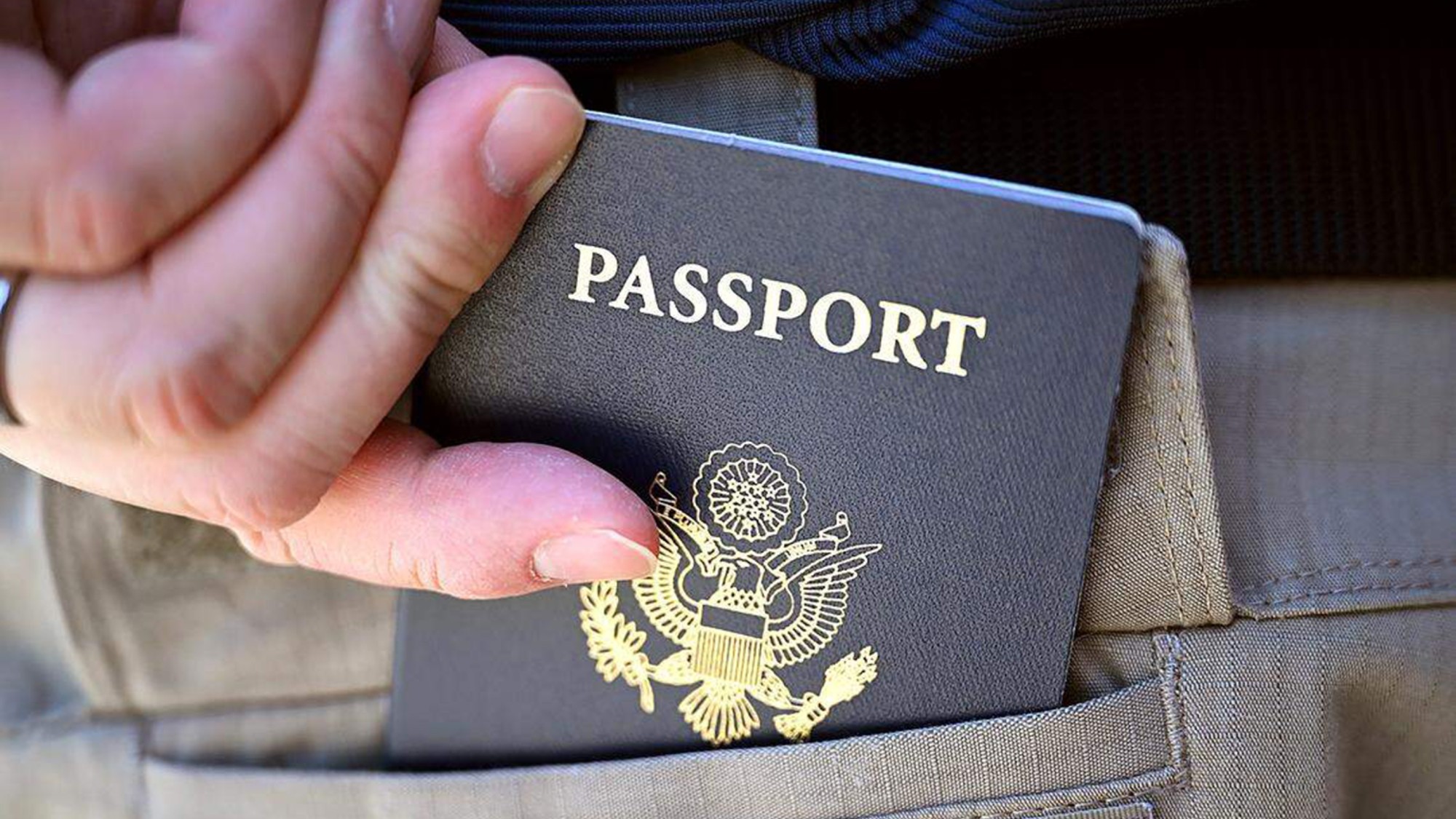Why India's farmers are protesting again
Unions march towards capital as government accused of failing to keep promises made after 2020-21 demonstrations

A free daily email with the biggest news stories of the day – and the best features from TheWeek.com
You are now subscribed
Your newsletter sign-up was successful
Thousands of farmers are taking their tractors to India's streets to demand government action over crop prices and regulations.
The "Delhi Chalo", or "Let's go to Delhi" march, said Reuters, has "brought back memories of the chaos" of 2020-21, when millions of farmers united to protest against the introduction of three agriculture laws.
The year-long uprising posed one of Prime Minister Narendra Modi's "biggest challenges", said the BBC. And with the country now just weeks away from a general election, his government won't want to lose the support of farmers, who are the "most influential voting bloc in India".
The Week
Escape your echo chamber. Get the facts behind the news, plus analysis from multiple perspectives.

Sign up for The Week's Free Newsletters
From our morning news briefing to a weekly Good News Newsletter, get the best of The Week delivered directly to your inbox.
From our morning news briefing to a weekly Good News Newsletter, get the best of The Week delivered directly to your inbox.
What do India's farmers want?
The "headline demand" of the farmers' 12-point agenda is that a minimum support price (MSP) must be legally guaranteed, said The Indian Express. The MSP provides a "safety net" for farming communities, said Al Jazeera, by setting the price at which the government buys crops. But while the MSP provides an "assured" income amid "market uncertainties", farmers want it increased to at least 50% higher than the cost of producing the crops.
Organisers are also calling for farm loans to be waived; for policies that allegedly "hurt" farmers to be overturned; and for farmers to receive pensions. They also want India to withdraw from the World Trade Organization (WTO) and for all free trade agreements to be frozen.
The movement's leaders claim members of more than 200 unions are now participating in the protest march, "under the banner" of the Kisan Mazdoor Morcha (KMM), said The Indian Express. Talks between the unions and the government have so far been "inconclusive", said Sky News.
What happened in 2020-21?
The introduction of three "controversial" agricultural reforms in 2020 sparked a "massive" protest, said the BBC. The proposed laws "loosened" rules around the sale, price and storage of farm produce, which had "protected farmers from the free market for decades".
A free daily email with the biggest news stories of the day – and the best features from TheWeek.com
The demonstrations "descended into violence several times", said Sky News. Farmers "hunkered down, encircling the capital and blocking key highways" before Modi repealed the laws in November 2021. "Dozens" died during the protests.
The farmers are now calling for promises made by the government back then to be delivered. These include providing compensation for the families of farmers who died during the protests and the formation of a committee focused on providing price guarantees.
How has the government responded?
Delhi has been "converted into a fortress", said Al Jazeera. Some of the city's entry points have been blocked with "barriers of barbed wire, spikes and cement blocks".
Drones dropped tear gas on thousands of farmers along the border between Punjab and Haryana earlier this week, and police and paramilitary officers are "stationed all along the highways" to block "tractor convoys" from getting to the capital, said Sky News.
With India's general election due to take place between April and May, and farmers comprising around two-thirds of the country's population, the government "will be keen to contain" the disruption and "not repeat past mistakes".
Yet farmers have described talks with Modi's government so far as "delaying tactics", said the BBC. Setting the stage for another long-running protest, the movement's leaders say they have the resources to camp out for at least six months if necessary.
Julia O'Driscoll is the engagement editor. She covers UK and world news, as well as writing lifestyle and travel features. She regularly appears on “The Week Unwrapped” podcast, and hosted The Week's short-form documentary podcast, “The Overview”. Julia was previously the content and social media editor at sustainability consultancy Eco-Age, where she interviewed prominent voices in sustainable fashion and climate movements. She has a master's in liberal arts from Bristol University, and spent a year studying at Charles University in Prague.
-
 Local elections 2026: where are they and who is expected to win?
Local elections 2026: where are they and who is expected to win?The Explainer Labour is braced for heavy losses and U-turn on postponing some council elections hasn’t helped the party’s prospects
-
 6 of the world’s most accessible destinations
6 of the world’s most accessible destinationsThe Week Recommends Experience all of Berlin, Singapore and Sydney
-
 How the FCC’s ‘equal time’ rule works
How the FCC’s ‘equal time’ rule worksIn the Spotlight The law is at the heart of the Colbert-CBS conflict
-
 How ‘Manchesterism’ could change the UK
How ‘Manchesterism’ could change the UKThe Explainer The idea involves shifting a centralized government to more local powers
-
 ‘Dark woke’: what it means and how it might help Democrats
‘Dark woke’: what it means and how it might help DemocratsThe Explainer Some Democrats are embracing crasser rhetoric, respectability be damned
-
 San Francisco tackles affordability problems with free child care
San Francisco tackles affordability problems with free child careThe Explainer The free child care will be offered to thousands of families in the city
-
 The Mint’s 250th anniversary coins face a whitewashing controversy
The Mint’s 250th anniversary coins face a whitewashing controversyThe Explainer The designs omitted several notable moments for civil rights and women’s rights
-
 Biggest political break-ups and make-ups of 2025
Biggest political break-ups and make-ups of 2025The Explainer From Trump and Musk to the UK and the EU, Christmas wouldn’t be Christmas without a round-up of the year’s relationship drama
-
 US citizens are carrying passports amid ICE fears
US citizens are carrying passports amid ICE fearsThe Explainer ‘You do what you have to do to avoid problems,’ one person told The Guardian
-
 Inside Minnesota’s extensive fraud schemes
Inside Minnesota’s extensive fraud schemesThe Explainer The fraud allegedly goes back to the Covid-19 pandemic
-
 Trump wants to build out AI with a new ‘Tech Force’
Trump wants to build out AI with a new ‘Tech Force’The Explainer The administration is looking to add roughly 1,000 jobs